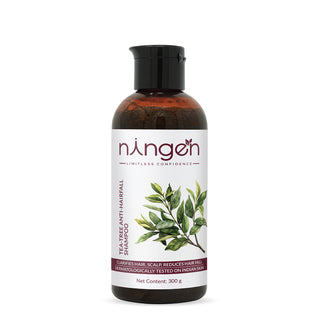We all know that smoking is detrimental to our health, but does it also contribute to hair loss? Many people are unaware of the potential link between smoking and hair loss, and it's important to understand the impact that smoking can have on our overall well-being. So lets understand the connection between smoking and hair loss, shedding light on the potential factors that may contribute to this issue. Whether you're a smoker or someone who is concerned about hair loss, this blog will provide valuable insights into the possible relationship between the two.
Understanding Hair Loss
Before we explore the impact of smoking on hair loss, it's essential to understand the basics of this common condition. Hair loss, or alopecia, can have various causes, including genetics, hormonal changes, nutritional deficiencies, autoimmune disorders, and lifestyle factors. And while it's a natural process for hair to go through growth and shedding cycles, excessive hair loss can be distressing for both men and women.
Link between Smoking and Hair Loss
Scientific research has indicated that smoking can indeed play a role in accelerating hair loss. Multiple studies have shown a correlation between smoking and increased rates of androgenetic alopecia (male and female pattern baldness). This type of hair loss is primarily influenced by genetics and hormones but can be exacerbated by external factors like smoking.
Smoking and Hair Follicle Damage
The toxic chemicals present in cigarette smoke, such as nicotine and carbon monoxide, can have a detrimental impact on the health of hair follicles. Nicotine restricts blood flow by constricting blood vessels, reducing the oxygen and nutrient supply to the hair follicles. This impairs their ability to function optimally, leading to weakened hair growth and increased hair shedding.
Furthermore, smoking generates free radicals, which are highly reactive molecules that cause oxidative stress in the body. Oxidative stress damages cells, including those in the hair follicles, leading to inflammation and miniaturization. Over time, this can result in the thinning and weakening of hair strands, ultimately contributing to hair loss.
Hormonal Imbalance and Smoking
Smoking has been found to disrupt hormone levels in the body, particularly those related to hair health. It can increase the production of certain hormones like androgens, which play a role in the progression of androgenetic alopecia. Higher levels of androgens can shrink hair follicles, shorten the hair growth cycle, and lead to the production of finer and weaker hair strands.
Secondhand Smoke and Hair Loss
It's worth noting that exposure to secondhand smoke can also impact hair health. Individuals who are frequently exposed to secondhand smoke may experience similar effects on their hair as active smokers. The harmful chemicals in the smoke can penetrate the hair shaft, leading to damage and weakening of the hair.
While the relationship between smoking and hair loss is complex, scientific evidence suggests that smoking can indeed contribute to hair loss by damaging hair follicles, causing hormonal imbalances, and promoting oxidative stress. Quitting smoking or avoiding exposure to secondhand smoke can significantly benefit overall health and potentially slow down the progression of hair loss.
Smoking and Hair Loss: Unveiling the Connection
Recent studies have indicated a link between smoking and hair loss, shedding light on the various mechanisms through which smoking can contribute to this condition. Tobacco smoke consists of over 7,000 chemicals, with at least 69 known to cause cancer. When these chemicals are inhaled, they enter the bloodstream, potentially impacting different aspects of health. While the precise reasons behind the association between smoking and hair loss are not fully understood, several contributing factors have been identified.
Hair follicle damage is one of the potential consequences of smoking. A study conducted in 2020 compared the prevalence of early-onset androgenetic alopecia (male or female pattern baldness) in male smokers and nonsmokers between the ages of 20 and 35. The findings revealed a higher incidence of hair loss in smokers compared to nonsmokers. It was observed that nicotine and related chemicals may be responsible for accelerating hair loss, although further research is needed to confirm this theory.
Oxidative stress is another factor associated with smoking and hair loss. Smoking increases the production of free radicals, which are reactive molecules that can damage the DNA of cells. This oxidative stress can impair the hair growth process by damaging the DNA of cells in hair follicles, leading to compromised hair growth.
Additionally, smoking has been linked to reduced blood flow to the hair follicles. Chemicals in tobacco can affect circulation and cardiovascular health, resulting in plaque buildup in blood vessels. Impaired blood flow to the scalp can disrupt the nourishment of hair follicles, potentially leading to hair loss or damage.
There are several other ways in which smoking may contribute to hair loss. Smoking can promote the release of pro-inflammatory cytokines, signaling proteins that trigger inflammation in the body. Increased cytokine levels can lead to scarring of hair follicles, potentially hindering their ability to produce healthy hair. Smoking has also been shown to affect enzyme levels involved in hair growth cycles, as well as hormone levels that can influence hair health.
It is important to note that quitting smoking can have significant benefits for overall health, including potential improvements in hair health. By quitting smoking, individuals can reduce the damaging effects of toxic chemicals, oxidative stress, and impaired blood flow on their hair follicles.
Try Ningen Onion Hair Care Range
Ningen Onion Hair Care range harnesses the power of phytochemicals to provide a comprehensive approach to your hair health. Phytochemicals are natural compounds found in plants that offer various benefits, including antioxidant, anti-inflammatory, and nourishing properties. Ningen Onion Hair Oil and Ningen Onion Hair Shampoo are enriched with phytochemicals derived from onions, which have been recognized for their potential to support hair growth and combat hair loss. These phytochemicals help to strengthen the hair follicles, stimulate blood circulation to the scalp, and provide essential nutrients to promote healthier hair growth. By incorporating the benefits of phytochemicals into their formulations, Ningen Onion Hair Care products offer a holistic solution that not only addresses hair loss due to smoking but also provides overall revitalization for thicker, stronger, and more beautiful hair.








